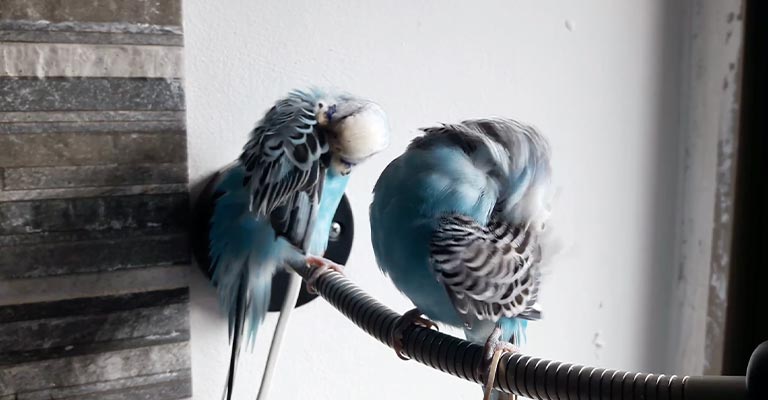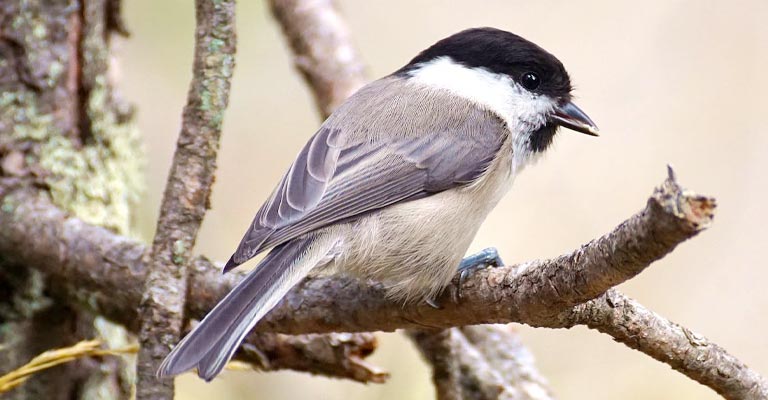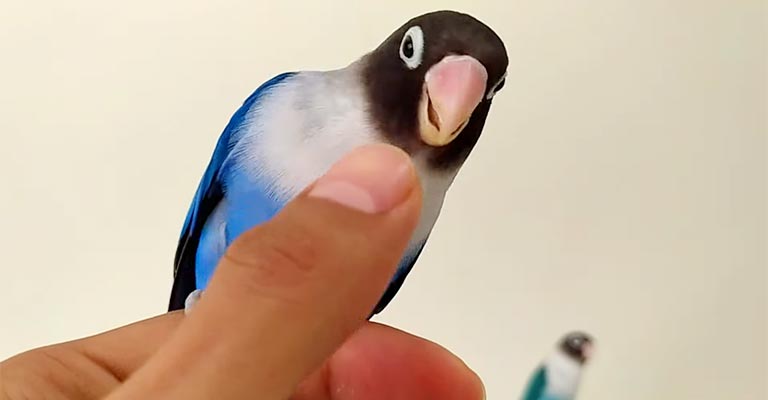Your avian companion’s incessant scratching might be more than just a casual itch. As a devoted bird owner, you’ve probably noticed the increased frequency of feather fluffing and scratching, leaving you puzzled and asking, ‘Why is my bird scratching so much?’
In this exploration into the feathered world, we delve into the myriad reasons behind your bird’s relentless scratching behavior.
From potential health issues to environmental factors, understanding the root cause is crucial for your bird’s well-being.
One key reason for excessive scratching in birds can be related to their skin and feathers. Birds molt, shed old feathers, and grow new ones. During this process, they may experience itching and discomfort, leading to increased scratching.
Join us on a feathered journey of discovery as we unravel the layers of this intriguing avian mystery.
It’s time to decode the signals your bird is sending and ensure that their feathers stay not only vibrant but also a reflection of their overall health and happiness.

Why Is My Bird Scratching So Much?
Let’s explore the potential reasons behind your feathered friend’s frequent scratching and provide insights on how to address and alleviate the issue.
Feather Mites and Parasites
One common culprit behind excessive scratching in birds is the presence of feather mites or other parasites. These microscopic intruders can irritate your bird’s skin, leading to increased scratching.
Feather mites are particularly notorious for causing discomfort, and their presence might not be immediately visible to the naked eye. Regular veterinary check-ups can help identify and treat these pesky invaders.
Dry Skin and Lack of Moisture
Just like humans, birds can suffer from dry skin, especially in environments with low humidity. Dry skin can trigger itching, prompting your bird to scratch excessively.
To combat this, consider adding a birdbath to their enclosure or misting them with water. Proper hydration is key to maintaining healthy skin and feathers.
Allergies and Irritants
Birds can develop allergies to various environmental factors, such as certain foods, cleaning products, or airborne particles. If your bird is scratching more than usual, assess any recent changes in their surroundings.
Switching to hypoallergenic bedding, avoiding strong scents, and providing a well-ventilated space can help minimize potential irritants.
Nutritional Deficiencies

A balanced diet is crucial for your bird’s overall health. Inadequate nutrition can lead to skin and feather problems, triggering excessive scratching.
Ensure that your bird’s diet includes a variety of fresh fruits, vegetables, and high-quality pellets. Consult with your avian veterinarian to create a customized nutrition plan tailored to your bird’s specific needs.
Psychological Stress
Birds are sensitive creatures, and stress can manifest in various ways, including increased scratching.
Changes in their environment, the introduction of new pets, or even a lack of mental stimulation can contribute to stress. Create a stable and enriched environment with toys, perches, and a consistent routine to alleviate potential stressors.
Fungal Infections
Fungal infections, such as aspergillosis, can affect a bird’s respiratory system and skin. Excessive scratching may be a symptom of such infections.
If your bird exhibits additional signs like difficulty breathing or changes in droppings, seek veterinary attention promptly. Fungal infections require specialized treatment to ensure a speedy recovery.
Feather Picking Behavior
In some cases, excessive scratching may be a result of feather-picking behavior. This can be a self-soothing mechanism in response to stress or boredom.
Observing your bird’s overall behavior and providing engaging activities can help address and redirect this behavior.
Environmental Factors

Assess the conditions of your bird’s living space. Dusty or drafty environments can contribute to skin irritation and trigger scratching. Maintain a clean and well-ventilated enclosure to promote a healthy environment for your bird.
Infections and Underlying Health Issues
Underlying health issues, such as bacterial infections or metabolic disorders, can manifest in skin-related problems.
If your bird’s scratching is accompanied by other concerning symptoms like lethargy, changes in appetite, or abnormal droppings, consult with a veterinarian promptly for a thorough examination and diagnosis.
Hormonal Changes
Birds undergo hormonal changes, especially during breeding seasons. These changes can influence their behavior, including increased scratching.
Providing a stable and comfortable environment can help mitigate the impact of hormonal fluctuations.
Addressing Excessive Scratching
Once you’ve identified the potential cause of your bird’s scratching, it’s crucial to take appropriate steps to address the issue. Consult with an avian veterinarian for a precise diagnosis and tailored treatment plan.
This may involve medicated baths, dietary adjustments, environmental changes, or specific medications, depending on the underlying cause.
Regular grooming and maintenance, such as trimming overgrown nails and beaks, can also contribute to your bird’s overall comfort. Additionally, ensure that your bird has access to clean water for bathing and hydration.
Responding to Discomfort
If you observe any signs of discomfort in your bird, it’s crucial to take prompt action. Consult with an avian veterinarian to rule out any underlying health issues.
Environmental adjustments, such as providing enriching activities, maintaining a stable routine, and creating a safe space, can contribute to your bird’s overall well-being.
How Do I Relax My Bird When Scratching?

Relaxing your bird when scratching involves creating a calm and secure environment while understanding and addressing their unique needs.
Birds, with their sensitive nature, respond positively to a harmonious atmosphere. Here’s a guide to help you relax your feathered friend and promote their overall well-being.
Establish a Consistent Routine
Birds thrive on routine, and a predictable daily schedule can provide them with a sense of security.
Ensure consistent feeding times, play sessions, and periods of interaction. A stable routine helps reduce stress and creates a relaxed environment for your bird to flourish.
Provide Enriching Activities
Stimulating your bird’s mind with engaging activities is essential for their mental well-being.
Offer a variety of toys, puzzles, and interactive games to keep them entertained. Rotate toys regularly to prevent boredom, and include items that encourage natural behaviors like foraging.
Create a Quiet Retreat
Birds appreciate a quiet and peaceful retreat where they can unwind. Designate a specific area in their enclosure as a cozy hideaway, ensuring it is free from loud noises and disturbances. This retreat serves as a safe space where your bird can relax without feeling overwhelmed.
Optimal Cage Placement
The location of your bird’s cage plays a significant role in their relaxation. Place the cage in a quiet area with minimal foot traffic, away from drafts and direct sunlight.
Birds feel more secure when they have a clear view of their surroundings, so position the cage at a height where they can observe their environment.
Gentle Music or Nature Sounds
Soft background music or nature sounds can have a calming effect on birds. Experiment with different genres to see what your bird responds to positively. Avoid loud or sudden noises, as they can startle and stress your feathered companion.
Maintain a Comfortable Temperature
Birds are sensitive to temperature changes, so ensure their living space remains at a comfortable and consistent level.
Avoid exposing them to drafts or extreme temperatures. Providing a cozy environment promotes relaxation and helps your birds feel secure in their surroundings.
Gentle Handling and Interaction
Approach your bird with gentleness and patience. Birds may feel stressed if handled too roughly or abruptly.
Gradually build trust through positive interactions, such as offering treats, speaking in a soothing tone, and allowing them to come to you at their own pace. Respect their boundaries, and avoid forcing interactions.
Offer Nutrient-Rich Foods
A well-balanced and nutritious diet contributes to your bird’s overall health and mood. Include a variety of fresh fruits, vegetables, and high-quality pellets in their diet.
Certain foods, like chamomile flowers or leafy greens, are known for their calming properties and can be offered to promote relaxation.
Maintain Cleanliness
A clean living environment is crucial for your bird’s relaxation. Regularly clean their cage, perches, and toys to prevent the buildup of dust and debris. A tidy space not only promotes good hygiene but also contributes to a sense of well-being for your bird.
Observe Body Language
Pay close attention to your bird’s body language to gauge their comfort level. Relaxed body posture, gentle preening, and a content demeanor indicate that your bird feels at ease.
Conversely, signs of stress, such as rapid breathing, fluffed feathers, or excessive vocalization, may signal the need for adjustments in their environment.
FAQs
Why is my bird constantly preening and scratching?
Excessive preening and scratching in birds can be attributed to various factors, including potential health issues like feather mites, dry skin, allergies, or even psychological stress.
How can I tell if my bird is stressed?
Signs of stress in birds include changes in posture, vocalization, and behavior. Aggression, avoidance, and excessive vocalization can indicate discomfort.
What foods can help calm my bird?
Certain foods with calming properties, such as chamomile flowers or leafy greens, can be included in your bird’s diet. However, it’s essential to consult with a veterinarian to ensure that any dietary changes are appropriate for your bird’s specific needs.
How often should I clean my bird’s cage?
Regular cage cleaning is crucial for maintaining a healthy environment. Aim to clean your bird’s cage at least once a week, removing droppings and uneaten food and replacing soiled bedding.
What can I do to bond with my bird and build trust?
Building a strong bond with your bird requires patience and positive interactions. Spend time talking to your bird in a soothing tone, offering treats, and engaging in gentle handling.
Conclusion
Deciphering your bird’s scratching habits is an essential step in providing optimal care for your feathered friend.
Whether it’s addressing potential health concerns, optimizing their living environment, or simply ensuring proper grooming, your attentiveness plays a key role in maintaining their well-being.
External factors like parasites, allergies, or environmental conditions can also trigger more scratching in birds.
By staying attuned to their behavior and seeking professional advice when needed, you can create a harmonious and healthy atmosphere for your avian companion.
With the right knowledge and care, you and your avian companion can continue to enjoy a harmonious and healthy relationship.
Remember, by understanding the intricacies of your bird’s scratching, you are actively participating in their journey to a happy and comfortable life.
So, embrace the role of a vigilant bird enthusiast, and watch as your feathered friend thrives with feathers that truly reflect the vibrant spirit within.